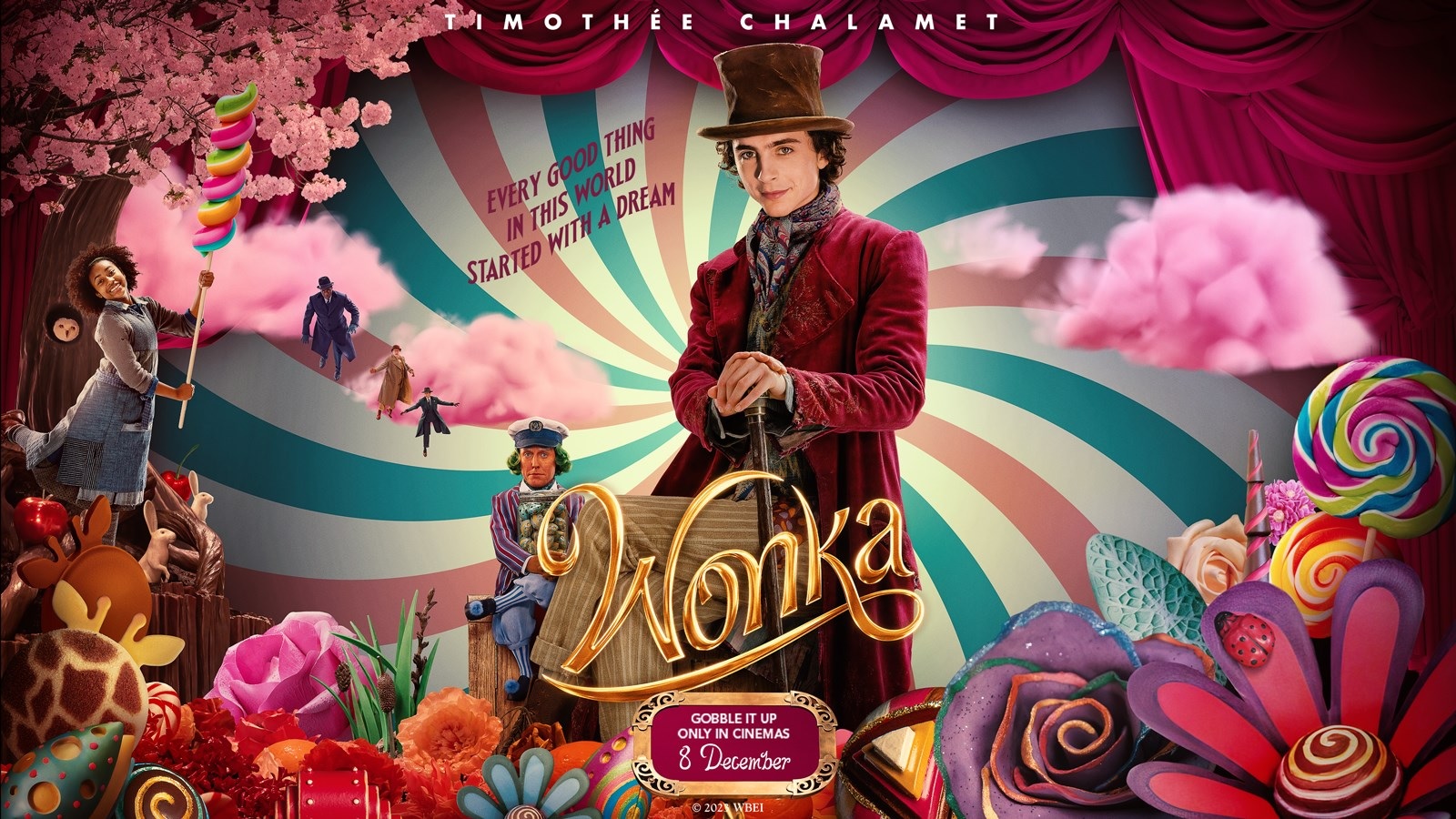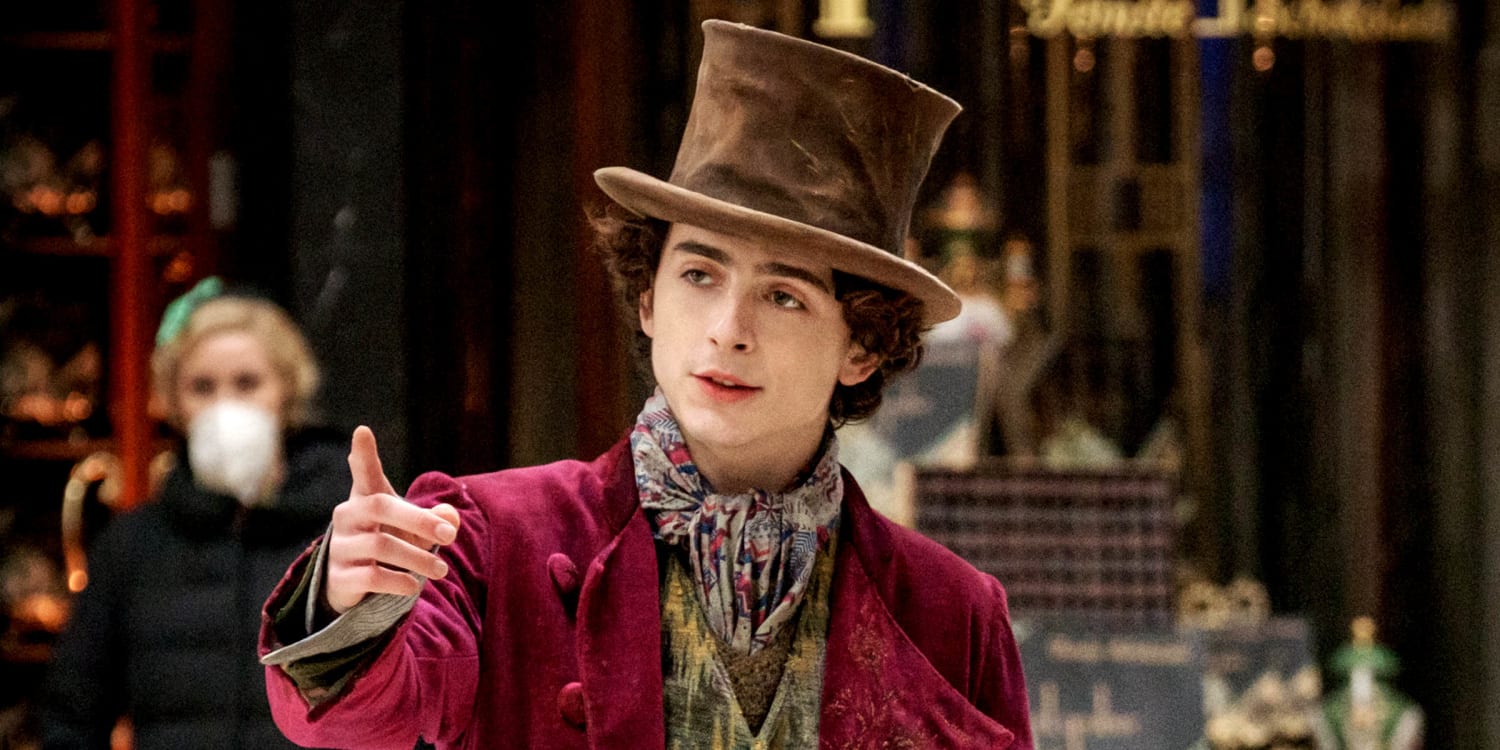Paul King’s “Wonka” (2023), starring Timothée Chalamet, was a highly anticipated film that left me questioning the kind of acting role Chalamet belongs in and the movie as a whole. Chalamet was out of place and hesitant in his role as Willy Wonka, a product of an equally questionable portrayal of the beloved story.

The film’s story follows Willy Wonka in his journey as a young chocolatier dreaming of creating his own grand chocolate shop. He moves to an unidentified and whimsical European city, where he gets trapped in an evil inn, and is followed by adults and policemen, pursuing him to make sure he doesn’t give out chocolate, all as Wonka has to find his way out to continue his chocolate-selling dream.

Willy Wonka is definitely a character with a big personality and an interesting backstory, but the movie did not do it justice in the way that I was hoping for. In Tim Burton’s “Charlie and the Chocolate Factory” (2005), Johnny Depp played an almost eerie and creepy Wonka. His portrayal always made me question Willy Wonka’s background and why he acts the way that he does. “Wonka” somewhat answered that question, but Chalamet’s portrayal of Wonka and the film, as a whole, did not make me feel the same sense of intensity. The new Willy Wonka portrayal was quirky and strange but did not show the slightly creepy Wonka that we all wonder about in the older movies.
It may sound harsh – and maybe it was just the scene with Wonka and Noodle, an orphan, milking a giraffe that seriously made me go wide-eyed – but I firmly believe this wasn’t the movie for Chalamet, or even most actors for that matter. I believe Chalamet has done justice to his noteworthy past roles, such as Elio in “Call Me by Your Name” (2017), Laurie in “Little Women” (2019) and Nic in “Beautiful Boy” (2018). Chalamet’s ability to play passionate characters with depth and intensity is something I greatly admire, but seeing him in “Wonka” made me increasingly uncomfortable and laugh for all the wrong reasons.
For example, let’s take Chalamet’s portrayal of Nic Sheff in “Beautiful Boy.” He played the character, based on a real person, with a devastating realness that shows the hardships addicts experience and the way their struggles alter their relationships. In every single moment of “Beautiful Boy,” I was encapsulated by Chalamet’s portrayal of Nic. Chalamet didn’t just act in that movie, he became the story and every moment within it.
“Wonka” has made over $400 million worldwide, with a film budget of around $125 million. To compare, “Beautiful Boy” grossed only about $17 million on a $25 million budget. Of course, I can not ignore the fact that the audience for “Wonka” is much wider than “Beautiful Boy” and it’s a PG-rated movie, while “Beautiful Boy” is rated R.

Knowing this discrepancy leads me to also compare Greta Gerwig’s film adaptation of Louisa May Alcott’s classic, “Little Women” to “Wonka.” Both movies are rated PG, yet “Little Women” grossed a little over $200 million– only half of what “Wonka” has made.
It is completely based on my personal movie preferences to heavily favor “Little Women” over the storytelling in “Wonka.” However, as a whole, I wholeheartedly believe that the heartfelt story of “Little Women” deserves so much more recognition and appreciation of its story and Chalamet’s acting than “Wonka.”

Chalamet’s capacity to portray the gravity of an Italian summer LGBTQ love story like “Call Me by Your Name,” or a tale of a family experiencing love and loss in the 19th century in “Little Women,” shows that he is more well-suited for serious roles rather than what is needed to tell the story of Willy Wonka. Equally, I still believe that “Wonka” could have been better as a film in terms of telling that story.